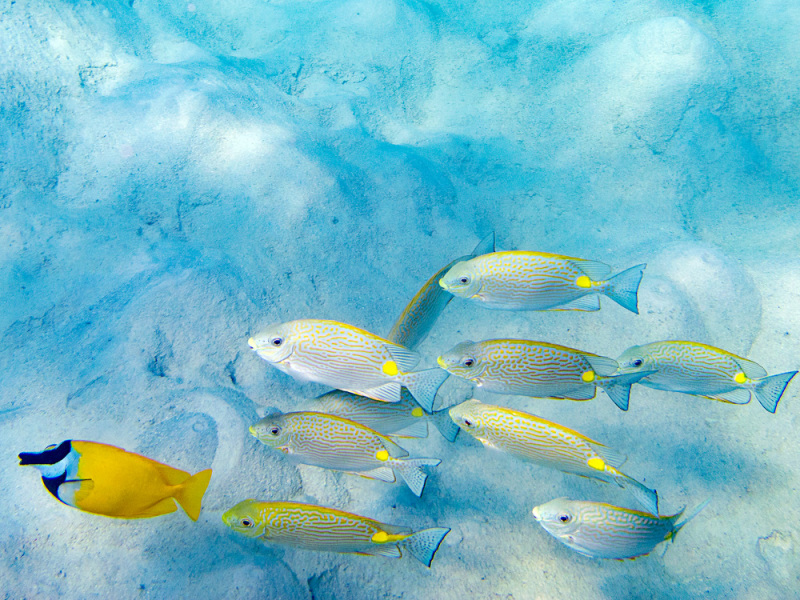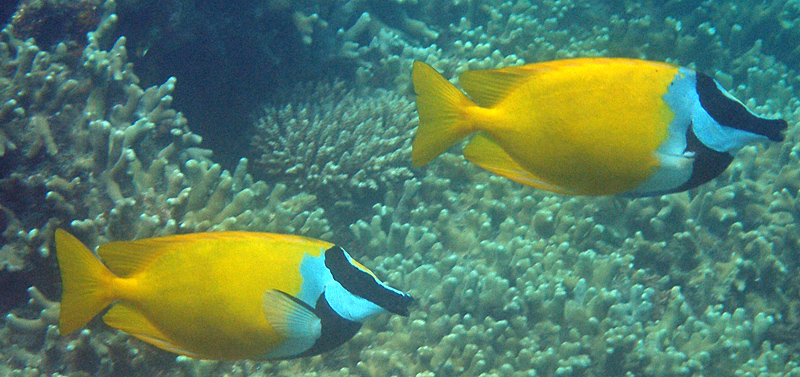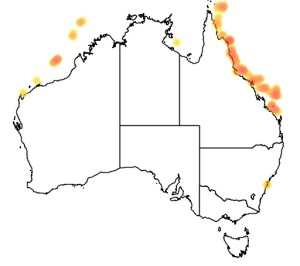
©Paul Asman: Siganus vulpinus followed by a group of Siganus lineatus at Clam Garden, Lizard Island.
Colours
Distinguishing features
A medium sized yellow fish with a white head, a black stripe through the eye and a black throat.
Size
- Up to 38 cm (Standard length)
Depth range
- Depth range data is not yet available.
Synonyms
Distribution
Distribution and habitat preferences
Areas of good coral cover on reef fronts, flats, and lagoons and other sheltered backreef habitats.
Can be found in most locations around the island.
Behaviour
The Foxeface Rabbitfish is a roving herbivore, moving around the reef in pairs and feeding on turf algae, seagrass and macroalgae. They spawn in groups during the warmer months, when fast running tidal currents coincide with dawn and dusk. They are mature at about 2 years of age, and the spawning takes place at a regular lunar phase. There is little published information on the demography or ecology of the Siganidae, but they are likely to be long-lived fishes. Juveniles look similar to the adults, but are always uncommon.
Web resources
Danger
- unspecified - The dorsal and ventral fin spines are poisonous, so care should be taken if handling this fish. First Aid - click here
References
- Borsa, P., S. Lemer and D. Aurelle (2007). Patterns of lineage diversification in rabbitfishes, Molecular Phylogenetics and Evolution, 44: 427-435. LIRS catalog number 90138.
- Brandl, S.J. (2016). Functional niche partitioning in herbivorous coral reef fishes, PhD thesis, James Cook University. LIRS catalog number 2142.
- Brandl, S.J. and D.R. Bellwood (2013). Morphology, sociality, and ecology: can morphology predict pairing behavior in coral reef fishes? Coral Reefs, 32: 835-836. LIRS catalog number 1718.
- View all references

